10 Ways to Support a Healthy Circulatory System

It’s estimated that the average adult has around 100,000 miles of blood vessels traveling throughout the body. To put this in perspective, the circumference of the earth is just under 25,000 miles. This vast network of blood vessels works in unison with your heart and lungs. Collectively, they are the machinery of the circulatory system.
The circulatory system transports oxygen, nutrients, immune cells, and hormones to and from almost every cell in the body. Without proper care, an unhealthy circulatory system can strain your heart, increase blood pressure, or even result in life-threatening blood clots (thrombi).
Given the circulatory system’s vital role, taking steps to support its health is an important endeavor. Here are 10 ways to support the well-being of your circulatory system.
- Get High-Quality Sleep
Believe it or not, quality sleep is one of the most important factors for a healthy circulatory system. Numerous studies indicate there is a clear relationship between heart disease and sleep quality (1). The less quality sleep you get, the more damage you could be causing to your heart (2).
Why does this happen? Sleep deprivation causes your blood pressure to spike (3). If you’re constantly sleep-deprived, it could lead to a chronically elevated blood pressure, which can strain your heart and damage the walls of your arteries (4). Use these tips to improve your sleep quality.
- Eat Food-Based Vitamin K
Vitamin K is best known for its role in blood clotting, which is why it’s a vital part of the circulatory system. But that’s far from its only function.
It’s believed that vitamin K can help prevent the formation of calcified plaques on the walls of your arteries (5). This is important because when calcifications form, arteries can become stiff. Over time, this can result in increased blood pressure and cause the heart to enlarge (6).
Ideally you should get your vitamin K from food rather than supplements. That’s because vitamin K supplements are ineffective for improving cardiovascular or circulatory health (7). People with higher levels of food-based vitamin K intake tend to have better overall cardiovascular health (8).
To increase your vitamin K, add more greens such as kale, spinach, broccoli and parsley. If you find it hard to eat more greens, consider adding an organic green juice to your daily routine for a fast and easy way to boost your greens intake.
- Develop a Consistent Exercise Routine
Developing a consistent exercise routine is essential for maintaining a healthy circulatory system. Exercise improves blood flow, eases blood pressure back to healthy levels, and controls blood sugar fluctuations (9, 10).
The good news is you don’t have to become a triathlon competitor to experience the circulatory benefits of exercise. Any movement that gets your blood pumping should do the trick.
Yoga has also been shown to impact several factors related to circulatory health. Research indicates that yoga reduces body weight, blood lipids, blood pressure, stress levels, and LDL cholesterol (11).
- Eat More Antioxidants
Free radicals are harmful substances that form when you’re exposed to toxins such as cigarette smoke, vehicle exhaust, or heavy metals. Antioxidants help neutralize free radicals and protect your body from their damaging effects.
Without enough antioxidants in your diet, these free radicals can oxidize cholesterol and cause plaques to build up on the walls of your arteries (12).
As such, diets rich in antioxidants may result in a decreased blood pressure and risk of heart disease (13). To increase your antioxidant intake, eat a wide variety of organic fruits, veggies and berries. You can also add antioxidant-rich herbs to your meals.
- Detoxify the Body
Exposure to heavy metals such as arsenic, lead, and cadmium is associated with an increased risk of cardiovascular disease (14). There’s also evidence that exposure to phthalates—chemicals found in personal care products and food packaging—are correlated with heart conditions (15).
There are many more toxins out there that can cause harm to your circulatory system. In fact, toxins are such a threat to the circulatory system that entire medical books are written on the topic (16).
While reducing exposure to toxins is essential, it’s critical to also detoxify the body. That’s where daily use of natural zeolite comes in. The benefits of natural zeolite include detoxing heavy metals and environmental pollutants.
- Avoid Refined Vegetable Oils
Contrary to what the food industry wants you to believe, vegetable oils are neither safe nor healthy, especially those derived from canola, corn, and soy.
Most vegetable oils on the market are highly refined and deodorized. The result is an unstable oil that’s both rancid and high in omega-6 fats. Consuming these oils can cause a substantial amount of inflammation which can compromise the health of your circulatory system (17, 18).
Some researchers even suggest that vegetable oils are a driver of cardiovascular disease (19, 20). Instead of using vegetable oils, opt for unrefined organic coconut oil, grass-fed ghee, or organic extra-virgin cold-pressed olive oil.
- Use Proteolytic Enzymes like Nattokinase
Proteolytic enzymes are tiny molecules that help your body digest and break down proteins. Studies suggest that proteolytic enzymes such as bromelain exert anti-inflammatory effects (21). It’s so effective that some athletes supplement it to support recovery. It’s one of the many benefits of proteolytic enzymes.
Improving blood flow is essential to maintain healthy arteries which can keep your blood pressure under control. Researchers have found that consistent use of nattokinase supports healthy blood pressure (22).
In another long-term study, participants who took nattokinase for 12 months showed a significant decrease in the buildup of plaques, supporting heart health (23). Therefore, these studies show how nattokinase is a powerful proteolytic enzyme essential to heart health and a healthy circulatory system.
- Get Enough Minerals to Support Healthy Blood Pressure
Several minerals are essential to maintain a healthy blood pressure (24). This includes potassium, magnesium, and calcium. All of which help your blood vessels relax when they’re supposed to.
It’s best to get these minerals through your diet from whole foods. Good sources of potassium include avocados, beans, potatoes, and watermelon. Top picks for magnesium include spinach, chard, and pumpkin seeds.
Also watch your intake of diuretics such as coffee or energy drinks. These can increase the loss of essential minerals.
- Drink Plenty of Water
When you get dehydrated, your blood can become thick. This makes it much more difficult for your heart to pump blood throughout the body. When you’re hydrated, on the other hand, it has the opposite effect.
If you’re struggling to drink 8 glasses throughout the day, try these tips to increase your water intake. It’s also important to drink filtered water, since water can often contain toxins.
- Try Contrast Hydrotherapy
Contrast hydrotherapy involves alternating between hot water and cold water exposure. Contrasting between hot and cold temperatures forces your blood vessels to dilate under the hot water and constrict with the cold water. Athletes often use this technique to assist in recovery as it’s believed to help boost circulation and the cardiovascular system (25).
The Bottom Line
Supporting a healthy circulatory system can have far reaching effects on your cardiovascular health, immune system and everyday energy levels. Considering that we rely on our circulatory system to transport vital oxygen and nutrients to every cell in the body, it’s important to give it extra care. These steps include getting enough sleep, being active, nourishing your body with plant-based nutrition, and considering adding nattokinase to your wellness routine.

